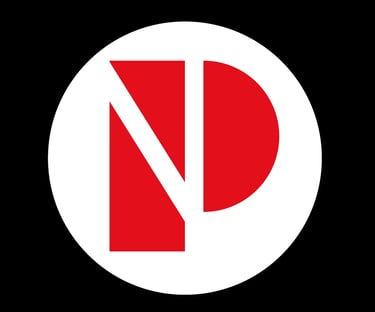The Gig Economy Generation: Why Gen Z Prefers Freelancing Over 9-to-5
Freelancing Over 9-to-5
8/16/20254 min read


Whereas previous generations climbed corporate rungs, Gen Z is building their own entrepreneurial ecosystems one side hustle at a time.
The old career path is dying, and Gen Z is holding the shovel. Having grown up in a world of economic instability, climate worry, and online interconnectedness, this generation has seen their parents lose their jobs from secure corporate positions and watched as entire industries vanished overnight. Their reaction? Make their own security through diversified income and flexible working arrangements that value autonomy over authority.
Unlike millennials who reluctantly joined the gig economy due to economic necessity after the 2008 recession, Gen Z is opting for freelancing as their work model for life from the starting point. They're not waiting for the traditional job to fail them they're avoiding it for something that aligns with their economic, lifestyle, and values goals.
This is not merely about earning money differently; it's about radically reimagining what work in the 21st century needs to be. Gen Z freelancers are creating careers that provide creative satisfaction, autonomy, and diversification of income, along with the work-life balance that traditional work promises but does not deliver.
The numbers don't lie: over 50% of Gen Z workers have either freelanced or had a side hustle, and many more plan to have it as their primary income source in five years. They're not just in the gig economy they're rewriting it entirely.
Freedom over Security:
The strongest motivation Gen Z has for freelancing is autonomy. Seeing their parents give up personal time, mental well-being, and family relationships for corporate allegiance that was seldom returned, they've come to understand that traditional job security is more of a myth. Instead, they're establishing their own type of security by diversifying skills and client portfolios.
Gen Z freelancers enjoy having the freedom to select their own tasks, their own work hours, and their own locations as long as they have an internet connection. They have seen remote work pay dividends during the pandemic and will not believe that productivity and creativity cannot be maintained in a place or a specific time period. The 9-to-5 routine seems arbitrary and limiting to a generation that works across international time zones and gets ideas at 2 AM.
This autonomy desire extends beyond work itself. Gen Z freelancers create their careers based on causes and values they believe in. They can choose clients whose missions align with their own, reject projects that compromise their ethics, and make time for activism, travel, or side projects without having to get permission from a boss first. This level of autonomy is unprecedented to a generation that's been taught their entire lives that real jobs require sacrifice and compromise.
The psychological benefits of this freedom can't be overstated. Gen Z is more anxious and depressed than any generation, and the traditional systems of the workplace exacerbate these issues for many. Freelancing allows them to create workspaces and work schedules that work for their psychological needs rather than against them.
The Multi-Stream Money Model:
Gen Z's financial strategy is a manifestation of their realistic grasp of economic uncertainty. Instead of investing all their eggs in a single corporate egg basket, they're creating what economists refer to as portfolio careers several sources of income that offer economic security and artistic fulfillment. A typical Gen Z freelancer may include graphic design clients and Etsy store sales, social media consulting revenue, and affiliate marketing earnings.
This diversification plan is not smart economics alone; it's also a response to observing how quickly one-income sources can evaporate. They've seen loved ones lose their jobs during economic downturns, entire industries disrupted by technology, and essential workers reduced to expendables during the pandemic. Multiple income streams provide them with the security that stable jobs once offered but no longer can.
The technology available to Gen Z makes this multi-stream approach more within reach than ever before. Fiverr, Up work, Patron, and Substack allow them to monetize abilities previous generations couldn't easily turn into cash. They can build audiences on TikTok, Instagram, or YouTube and use that following as a means to turn it into paying customers for their products or services.
Most Gen Z freelancers also embrace the concept of passive income creating products, courses, or content that make money without requiring ongoing active effort. This might include selling digital templates, offering online courses, or building subscription businesses. They see that selling time has inherent limits and actively work to create income streams that scale more than their own time investment.
Digital Natives, Digital Entrepreneurs:
Gen Z's technological familiarity gives them an enormous head start in the freelance economy. They've never known a world without the internet, social media, or the smartphone, and therefore digital marketing, online networking, and virtual teamwork are second nature rather than learned skills. Whereas older freelancers struggle to create online presence or utilize digital payment mechanisms, Gen Z treats these as normal business processes.
This digital literacy also comes in handy when it comes to understanding how to work algorithmic platforms, create viral content, and build personal brands that attract clients independently. They know how to leverage LinkedIn for B2B networking, Instagram for visual portfolio presentation, and TikTok for presenting expertise in an engaging way. Their ability to create and post content on multiple platforms simultaneously gives them marketing advantages that would have cost expensive agencies decades ago.
Gen Z freelance workers also benefit from the pervasiveness of remote work and online collaboration tools. They're accustomed to video calls, cloud-based project management, and asynchronous communication tools that make geographic location irrelevant for much work. This opens up global client opportunities that were unavailable to previous generations of freelance workers. Their familiarity with internet culture and online trends makes them worth their weight in gold to companies looking to connect with young people. Gen Z freelancers are likely to be best at managing social media, creating content, online marketing, and other areas that need insider knowledge of internet culture and new platforms.
The gig economy generation isn't just managing economic uncertainty they're creating new ways of working that prioritize flexibility, values alignment, and economic diversification over the old metrics of career success. As Gen Z continues to join the workforce, their preference for freelancing will reshape industries and push traditional employers to rethink what they offer workers in a more competitive talent economy.
Discover all the information you need in one place.
© 2024. All rights reserved @ PictorialNuggets.com


